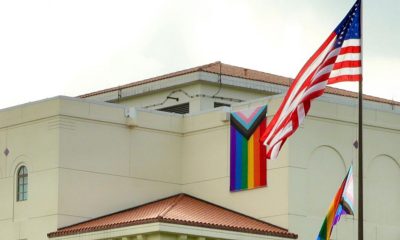South America
Far-right takes control of Chile’s constitutional council
Activists fear LGBTQ, intersex rights could be at risk

In a twist that raises concerns about LGBTQ and intersex rights in Chile, the body charged with writing the country’s new constitution is now under the control of a far-right political coalition that former presidential candidate José Antonio Kast leads.
Compared to the progressive approach that had characterized the previous Constitutional Convention, the change in the composition and the Republican Party’s control of the constitutional council raises serious concerns.
The former council demonstrated a willingness to address equality and nondiscrimination, including the rights of LGBTQ and intersex people. With the Republican Party in control, however, there have been warnings of potential pushback on hate speech and constitutional protections for queer people.
“The current constitutional process is the last effort to replace the current constitution, which, with all the modifications it has undergone, is still the one built during the dictatorship and reformed with the rules established by the dictatorship,” Gaspar Domínguez, an openly gay man who was the vice president of the previous Constitutional Convention, told the Washington Blade.
Chile’s LGBTQ and intersex community for years has been fighting for recognition and equal right, and it is increasingly fearful the Republican Party could thwart these efforts. Marriage equality, nondiscrimination and recognition of gender identity could be at risk.
Chileans in December will have to return to the polls to approve or reject the constitutional council’s proposal. If rejected, the current constitution that dates back to Gen. Augusto Pinochet’s dictatorship and caused widespread social upheaval in 2019 will remain in force.
Domínguez explained “the text that will be submitted to plebiscite at the end of the year will be the result of the deliberation and voting on the amendments of the constitutional council, which is composed mostly by conservative sectors of the Chilean society that opposed the decriminalization of sodomy in 1999, opposed the divorce law in 2004, that have opposed same-sex marriage bills over the last two decades and that have been linked to the most conservative sectors of the right, to the Catholic and Evangelical churches.”
“Considering this political scenario, it is a real option that the proposal to be voted on at the end of the year constitutes a threat to the civilizational advances that have allowed the LGBTIQ+ community to grow in equality,” he noted.
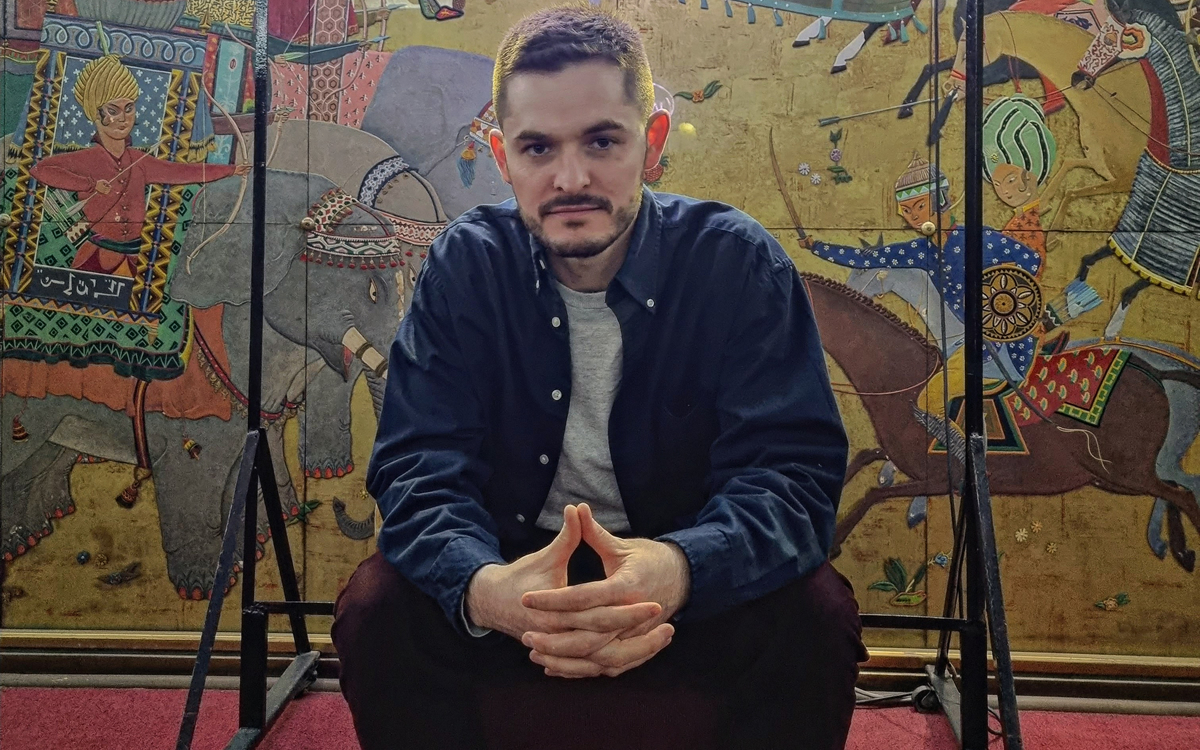
María Pardo, a constitutional lawyer with “Unity for Chile,” the pro-government bloc within the council that champions queer issues, told the Blade “we are in a political context that has led us to write a shorter constitution and with a much more conservative and majority opposition than the previous period that wants to go backwards or not to advance on these issues for different reasons that they use. They consider, for example, that historically oppressed groups enjoy privileges. Faced with sectors (that have) a clear anti-women and anti-sexual diversity agenda, we have to confront them.”
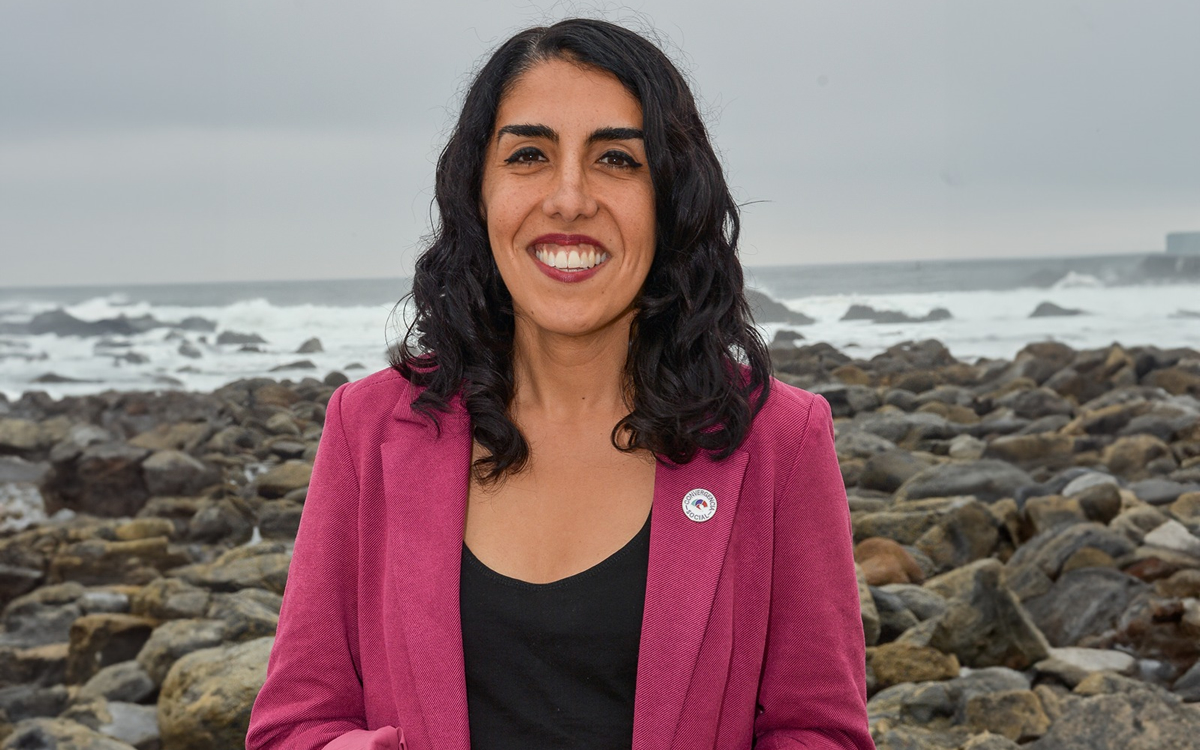
Pardo’s coalition did not present amendments with explicit references to LGBTQ and intersex people because “we did not present aspects as specific as in the convention, but we did present aspects tending to nondiscrimination and recognition of historically vulnerable groups. In this sense, we consider fundamental the development of the so feared, by the right wing, Comprehensive Sexual Education (ESI), as the basis for children and adolescents to feel integrated in safe spaces of development and conversation, leaving out discriminatory stereotypes. In this sense, we insist that comprehensive sexual education is a human right and not a sole and exclusive responsibility of families.”
Gloria Hutt, a constitutional advisor for Evópoli, a center-right political party that supports LGBTQ and intersex rights, indicated the nondiscrimination amendment is not at risk.
“My impression is that it should indeed be approved in the plenary, because it is an obvious right the protection of people’s rights and an element of nondiscrimination,” she told the Blade. “At least, I don’t have the impression that it is at risk.”
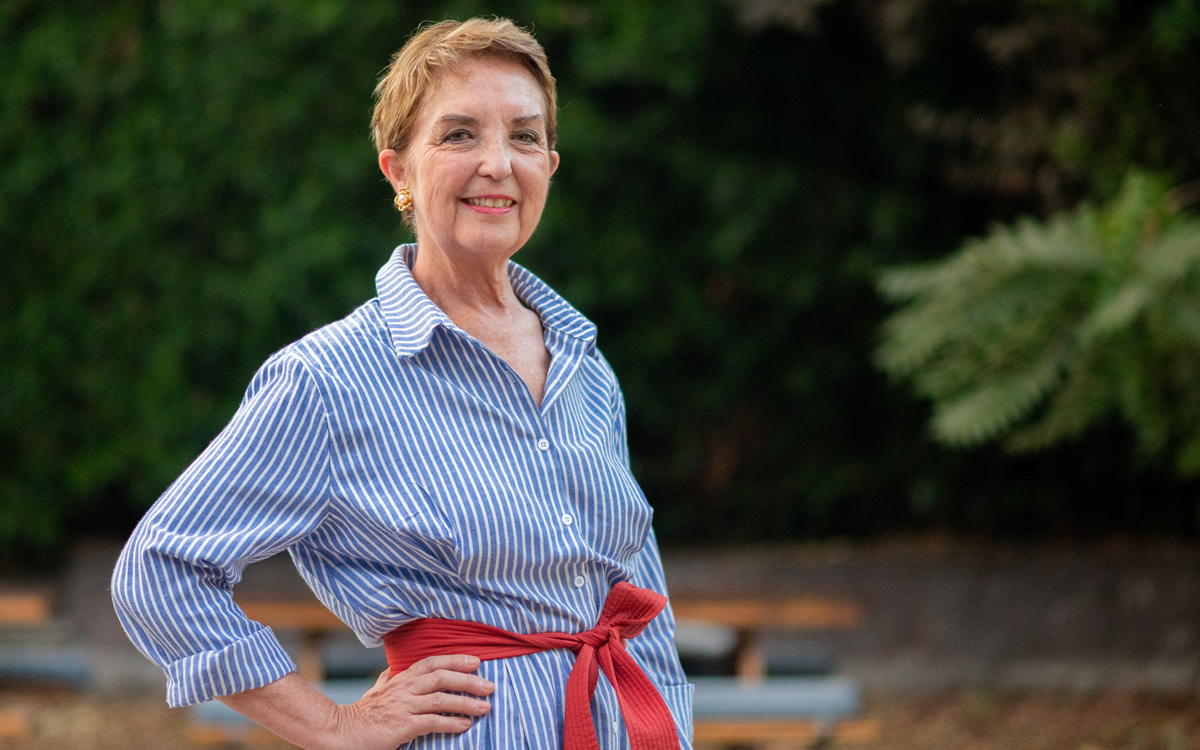
Hutt, who was a former minister in President Sebastián Piñera’s government, argues the “lack of mention of specific groups” in the draft constitution “has to do mainly with the fact that the identification of elements of inclusion or nondiscrimination are very many. So, in the constitution, what is left is the general principle and not the specific mention of each one of the groups. That is why nondiscrimination is maintained as a principle, but without specifying the type of discrimination, but of course, sexual orientation.”
Fundación Iguales, a Chilean LGBTQ and intersex rights organization, said they are closely watching the debate over the new constitution and how it will impact queer people.
“We are monitoring the work with concern,” Mauricio Henríquez, the group’s legal director, told the Blade. “Extreme conservative discourses could directly harm the rights of LGBTI+ people.”
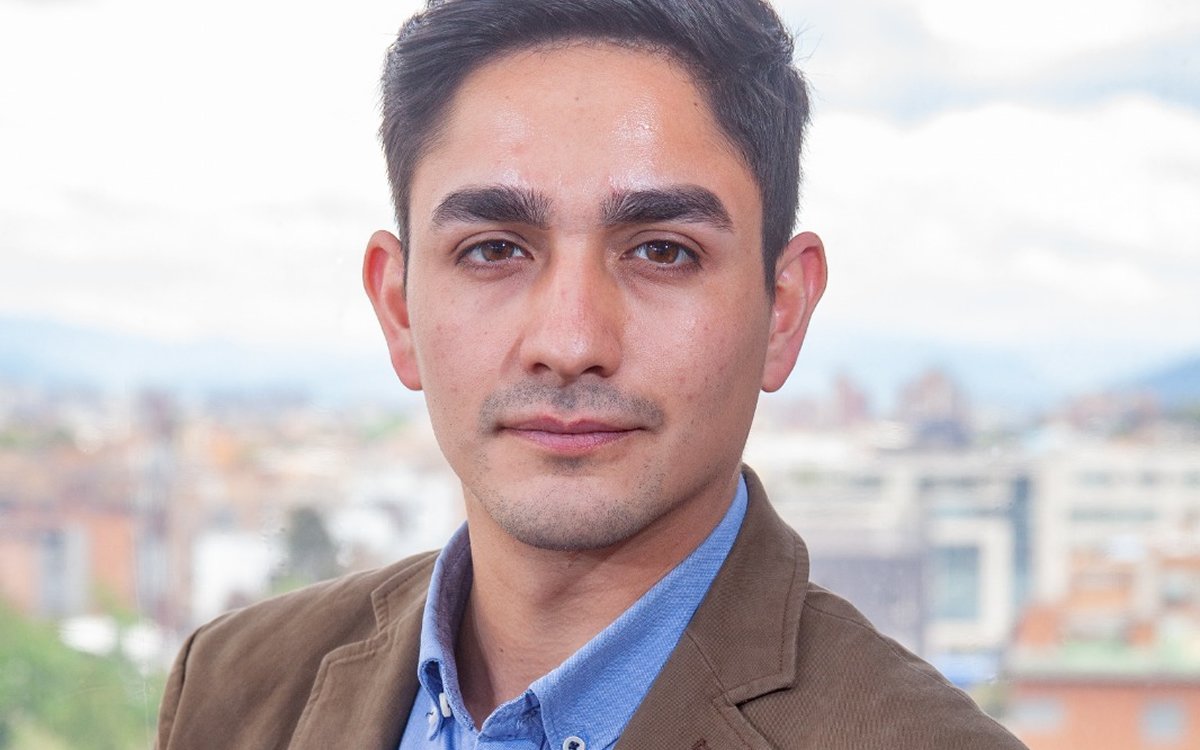
Henríquez added “historically, the conservative ultra-right has opposed the recognition and protection of the rights of sexual and gender diversity. They were against the Civil Union Agreement, equal marriage, the regulation of gender Identity, etc. So, given this background and the harsh comments expressed by some councilors regarding rights and freedoms in the last weeks, it would not be surprising that the constituent drafting would take the same course as the aforementioned rights.”
Henríquez finally pointed out that “more than a setback, there is a kind of invisibilization of historically discriminated groups, including LGBTI+ people.”
“Here it is important to make clear that the state of Chile and the inhabitants of this country already have a commitment to sexual and gender diversity that no political sector, no matter how conservative or extremist it may be, can deny,” he said. “For this reason, the call we make from Fundación Iguales is that the constitutional advisors legislate looking at the reality of a country that day by day advances in freedom, development and protection of human rights.”
Chile
Transgender woman sues Chilean national police
Isabella Panes alleges she suffered harassment, exclusion after becoming ‘carabinera’

Isabella Panes in 2022 was celebrated as a symbol of inclusion.
Wearing an olive green uniform and a shy smile, she appeared in the media and on social media as Chile’s first trans female “carabinera” or national police officer. The Carabineros promoted Panes as a sign of openness, but that story has become a dramatic case of institutional discrimination.
Panes today faces the Carabineros in court.
She has denounced a series of systematic acts of exclusion, harassment at work, and violation of fundamental rights that she and her defense team maintains pushed her into a mental health crisis that almost cost her her life.
“My hope is that tomorrow we will be able to live in a world of equality for all. Just that we understand that we are human beings and we have to make life a lot easier for each other,” Panes told the Washington Blade during an exclusive interview.
Panes, 29, grew up in Laja in the Biobío region.
She dreamed of becoming a “carabinera” since she was a child, despite the fact that she faced discrimination because of her gender identity. After years of effort, surgeries and a difficult transition, Panes enrolled in the Carabineros Academy in 2021.
Panes faced the challenge of making her medical processes compatible with the physical demands of training. Even so, she graduated with good marks, and was recognized as part of the new institutional image the Carabineros wanted to project after the 2021 social unrest tarnished their image.
This institutional support disappeared after the media campaign.
Panes alleges she was marginalized from operational duties and relegated to administrative tasks, despite her interest in and training to patrol the streets like any other officers.
“I joined the Carabineros to serve, not to be a marketing decoration,” she said. “I was offered to be part of the change, but only if I kept quiet and accepted the mistreatment.”
The accusations against the Carabineros are serious: Constant mockery by colleagues, dissemination of private information about her personal life, invasive questions about her body and sexual orientation. Panes’s legal representatives said this abuse took place within a context where the institution did not take effective measures to protect their client.
The Carabineros Social Security Administration, known by the Spanish acronym Dipreca, also refused to cover her transition-related medical procedures, arguing they were “aesthetic,” despite medical reports that indicated their importance for Panes’s mental health and well-being.
Panes in January attempted to kill herself by suicide. She managed to survive after calling Chile’s 4141 mental health care number for help.
“They were killing me slowly, from the inside,” said Panes.
Panes has brought her case to the Supreme Court after a lower court ruled in favor of Dipreca’s decision to not cover her medical treatments.
Her legal team in a lawsuit has also accused the Carabineros of employment and systematic discrimination. Panes is seeking damages and institutional reforms.
“The Carabineros used Isabella to clean up its public image, but when it came to guaranteeing real rights, they abandoned her,” said Javiera Zúñiga, spokesperson for the Movement for Homosexual Integration and Liberation, a Chilean advocacy group.
“It is not enough to show up at the Pride march,” she added. “True inclusion is demonstrated in deeds, in daily dealings, in respect for the dignity of all people.”
Panes’s case starkly exposes the limits of diversity policies when there is no deep institutional commitment to implement them.
“I am no longer afraid,” said Panes, ”What happened to me cannot happen again. Not for me, but for all those who come after me.”
Brazil
US lists transgender Brazilian congresswoman’s gender as ‘male’ on visa
Erika Hilton has represented São Paulo since 2022

A transgender Brazilian congresswoman says the U.S. issued her a visa that listed her gender as “male.”
Erika Hilton on Wednesday wrote on her Instagram page that she requested a visa that would have allowed her to travel to the U.S. in order to participate in the Brazil Conference at Harvard University and the Massachusetts Institute of Technology.
The conference took place earlier this month.
“I was classified as ‘male’ by the U.S. government when I went to get my visa,” wrote Hilton, who added a visa she received from the U.S. in 2023 listed her gender as “female.”
Hilton is a Black travesti and former sex worker from São Paulo who won a seat in the Brazilian Congress in 2022. The Washington Blade spoke with Hilton shortly after her election.
“It is a big responsibility … but I feel very honored,” said Hilton. “I very much like to be able to be a representative for my people, and the more than 250,000 people who voted for me have confidence in me,” she said after she spoke at a rally in support of now Brazilian President Luiz Inácio Lula da Silva in a São Paulo square. “This demonstrates that our work has the potential to have a gigantic reach; where we can advance efforts to end death, poverty, misery, genocide that we have.”
President Donald Trump in his inaugural speech announced the federal government’s “official policy” is “there are only two genders, male and female.” The Trump-Vance administration has also banned the State Department from issuing passports with “X” gender markers.
Germany and Denmark are among the countries that have issued travel advisories for trans and nonbinary people who plan to visit the U.S. These warnings come ahead of WorldPride, which is scheduled to take place in D.C. from May 17-June 8.
Hilton said she is “not surprised” the U.S. issued her a visa with a male gender marker.
“I’m also not surprised by the level of hatred and fixation these people have with trans people,” she said. “After all, the documents I presented are rectified, and I’m registered as a woman, even on my birth certificate.”
Hilton further accused the U.S. of “ignoring official documents from other sovereign nations, even from a diplomatic representative.”
“At the end of the day, I’m a Brazilian citizen, and my rights are guaranteed and my existence is respected by our own constitution, legislation, and jurisprudence,” she said.
Editor’s note: Duda Salabert, another transgender Brazilian congresswoman, also said the U.S. listed her gender as “male” on her American visa.
Argentina
Gay, nonbinary parent fights for family in Argentina’s courts
Leonardo Hatanaka alleges they were fired after requesting paternity leave

An unprecedented case could set an important legal precedent for the rights of labor rights for LGBTQ families in Latin America.
Leonardo Hatanaka, a Brazilian pharmaceutical professional, expects an imminent ruling from the Superior Court of Justice in the Autonomous City of Buenos Aires in a case that alleges discriminatory dismissal based on sexual orientation, gender identity, and xenophobia after their son Matteo’s birth in Argentina via “solidarity gestation.” Human rights organizations and international agencies have followed the case closely.
Genzyme de Argentina S.A. and Sanofi in 2023 fired Hatanaka weeks after they notified them of their son’s paternity and requested 180-day parental leave.
“Matteo’s birth was the realization of a dream and the right to form a family with love, dignity and equality, even if that means having to fight every day for our family to be recognized as such,” Hatanaka told the Washington Blade in an exclusive interview.
The National Institute Against Discrimination, Xenophobia and Racism, a government agency known by the acronym INADI that President Javier Milei’s administration has shut down, in November 2023 said Hatanka’s termination was motivated by discrimination based on sexual orientation and gender identity.
(Milei took office in December 2023.)
The General Directorate of Coexistence in Diversity in Buenos Aires’s government in 2024 said institutional xenophobia motivated the firing.
“I am a gay man, foreign, nonbinary, and I had requested to exercise my right to parental leave,” Hatanaka explained. “The company denied access to a basic right to care, which it does provide in other countries, and did not provide any medical coverage for our son, despite his legal registration with both parents’ names.”
Sanofi did not acknowledge responsibility, offer apologies or any kind of reparations, despite the two rulings.
“It was devastating. I was caring for a newborn, at a moment of enormous vulnerability, and the company chose just that moment to abandon us,” said Hatanaka.
The National Labor Court overturned an initial injunction that ordered Hatanaka’s reinstatement. Hatanaka appealed the decision to the Superior Court of Justice in the Autonomous City of Buenos Aires.
“I hope for justice; that the discrimination suffered is recognized, and that this ruling serves as a precedent for all diverse families and LGBTQ+ people who are seeing their rights violated,” said Hatanaka.
The Argentine LGBT Federation, SOS Homophobie in France, and Mothers of Resistance in Brazil are among the organizations that have expressed their support. The latest U.N. report on anti-LGBTQ discrimination also notes the case.
“Companies must go beyond marketing,” Hatanaka emphasized. “Real inclusion requires concrete actions, consistency, and respect for their own policies.”
Hatanaka stressed that “there are instruments such as the UN Guiding Principles on Business and Human Rights. It is time for them to comply with them.” The lawsuit has also become a symbol of the struggle for equality and protection of families with parents who are the same sex.
“I feel I represent many LGBTQ+ families who live in fear of losing everything by exercising their rights,” said Hatanaka. “LGBTQ+ parenting is legitimate, real and deserves protection. No family should be punished for existing.”
-

 Federal Government2 days ago
Federal Government2 days agoHHS to retire 988 crisis lifeline for LGBTQ youth
-

 Opinions2 days ago
Opinions2 days agoDavid Hogg’s arrogant, self-indulgent stunt
-

 District of Columbia2 days ago
District of Columbia2 days agoD.C. police seek help in identifying suspect in anti-gay threats case
-

 Opinions2 days ago
Opinions2 days agoOn Pope Francis, Opus Dei and ongoing religious intolerance





